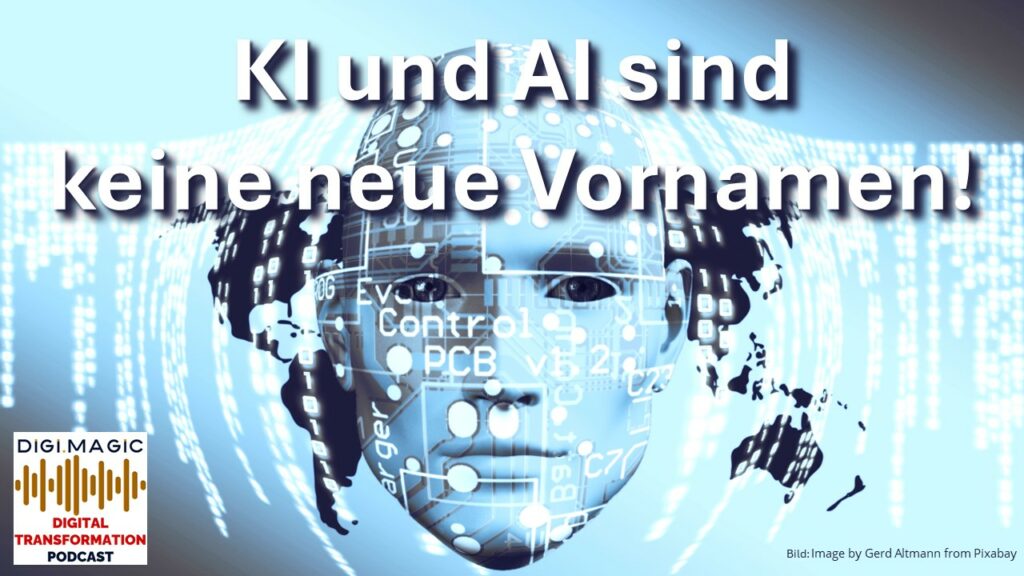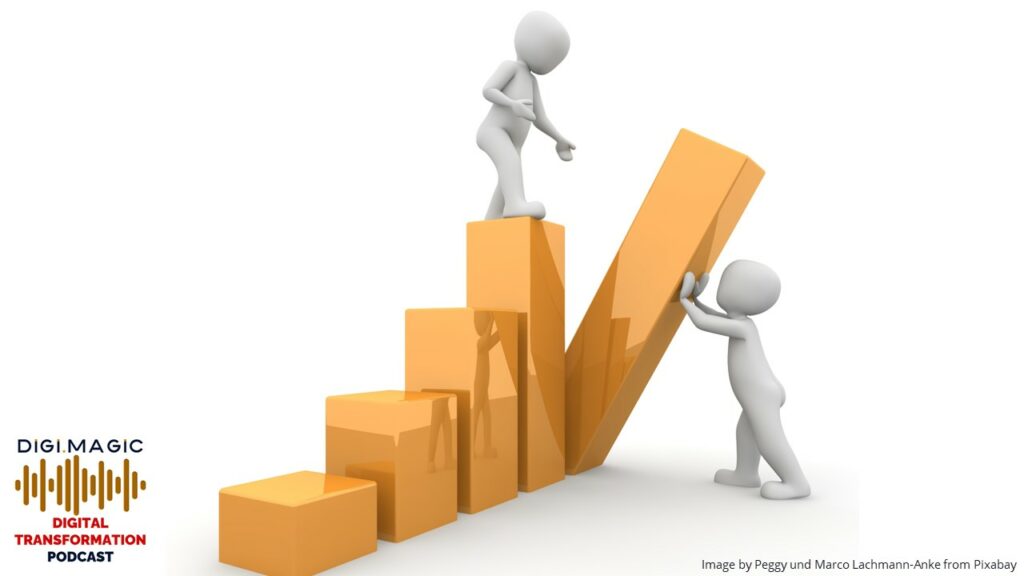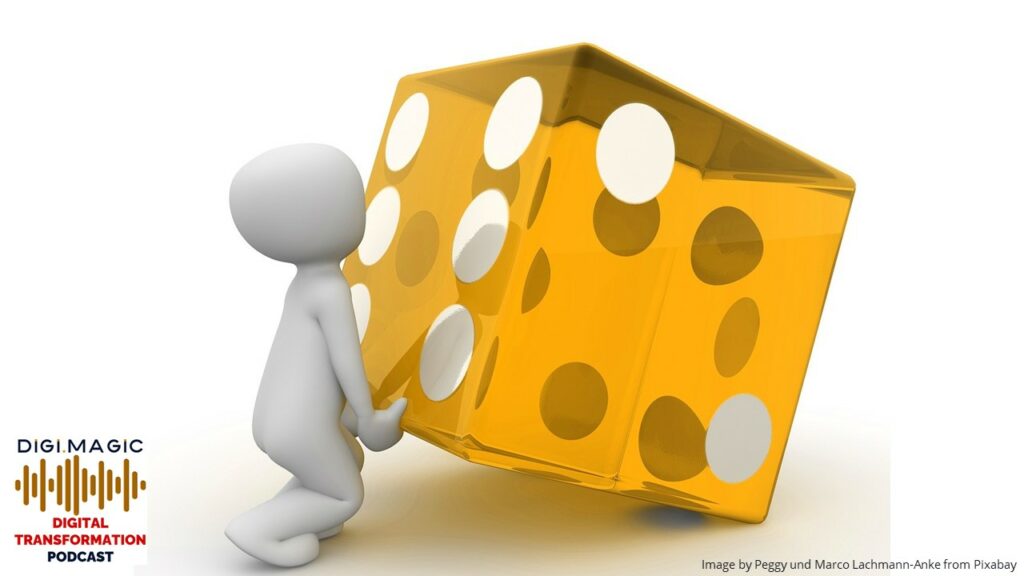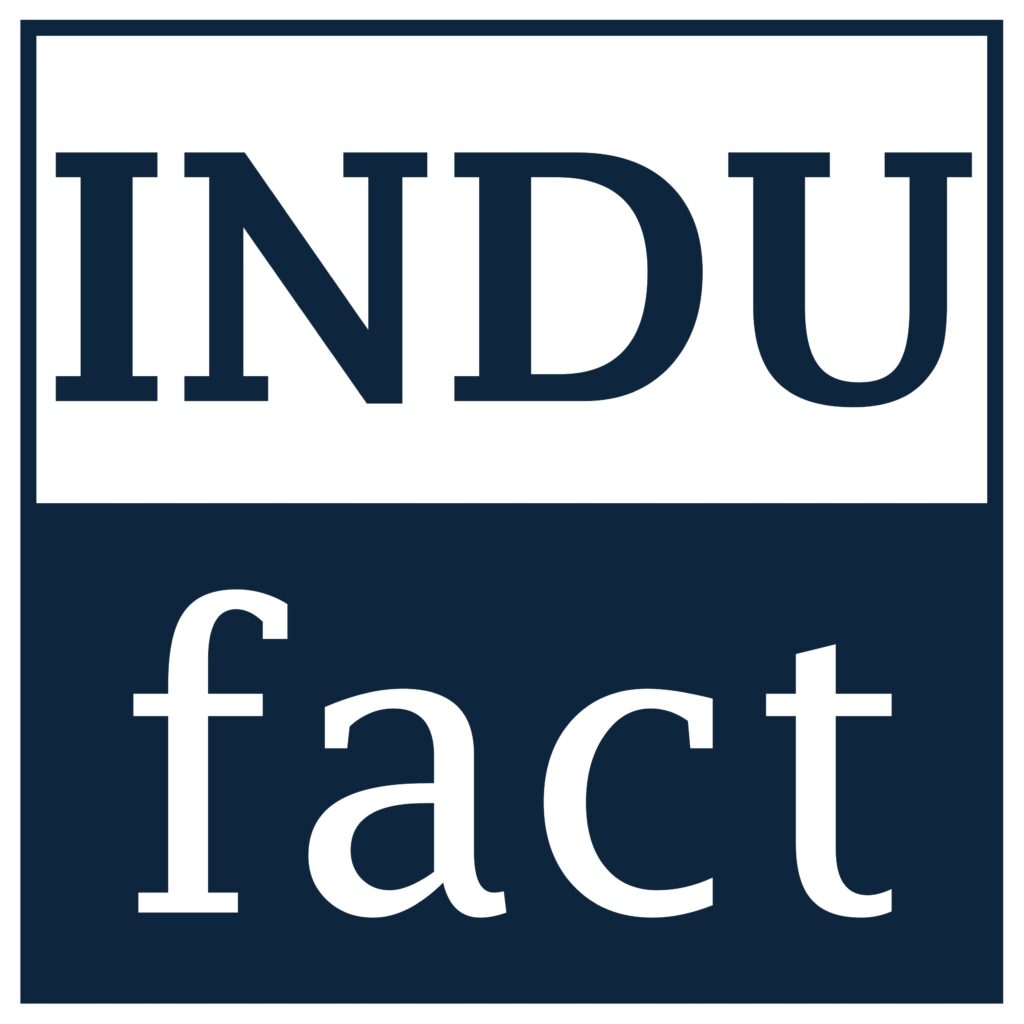AI and AI are not new first names!

In an era in which “AI” (artificial intelligence) and “AI” (Artificial Intelligence) have become the all-dominant buzzwords in politics, the press, social media and in all our lives, it is worth taking a look behind the scenes and exploring how deeply these concepts are already rooted in human history. AI is a term that may sound futuristic, but it is based on mathematical principles that have been established for several centuries. In this blog article, we will look together at the historical roots of AI as well as statistics and stochastics, which are the fundamental building blocks of modern AI systems.

The beginnings of statistics
Statistics, understood as the science of data collection, data analysis and data interpretation, had its formal beginnings as early as the 17th century. One of the earliest works to use statistical methods is John Graunt’s “Natural and Political Observations Made upon the Bills of Mortality” from 1662. Graunt analyzed mortality rates in London, creating a pioneering approach to using quantitative data for social observations. The further development of statistics was closely linked to the need of state structures to collect information about populations, which is how the term was derived from the Latin “status”.
Stochastics and the birth of probability theory
Stochastics, the study of calculating and analyzing probabilities, developed in parallel with statistics. The foundations of modern probability theory were laid in the 17th century by the exchange between Blaise Pascal and Pierre de Fermat, with Jacob Bernoulli’s “Ars Conjectandi” (1713) as a key work that systematically dealt with the theory of probabilities.


The emergence of artificial intelligence
Artificial intelligence was formally introduced as an independent field of research as early as 1956 at the “Dartmouth Conference”, organized by John McCarthy and colleagues. Although the idea of machines capable of performing human intelligence had existed before – highlighted by Alan Turing’s famous paper “Computing Machinery and Intelligence” (1950) – this conference marked the beginning of a new era in AI technology.
The combination of ancient mathematics and modern technology
The core thesis that AI is essentially based on the centuries-old mathematical principles of statistics and stochastics is not only fascinating, but also true. What sets modern AI apart from its historical roots, however, is the ability to apply these principles with unprecedented speed and efficiency through today’s computer technology.
The dramatic increase in computing power has made it possible to develop complex models that can learn and make decisions in real time, revolutionizing a wide range of industries from medicine to the automotive industry and from journalism to law firms through modern AI algorithms.


Conclusion
The history of artificial intelligence is a story of the evolution of mathematical ideas coupled with technological breakthroughs.
While the fundamental principles of AI are indeed old, the way we use these principles today has opened up a new era of innovation and application. Artificial intelligence is therefore less an invention of modern times than the result of a long history of development that shows how deeply rooted the foundations of AI are in human cognition.
Sources
- John Graunt, “Natural and Political Observations Made upon the Bills of Mortality”, 1662.
- Jacob Bernoulli, “Ars Conjectandi”, 1713.
- Alan Turing, “Computing Machinery and Intelligence”, 1950.
- Dartmouth Conference
# Hashtags
- #ki
- #artificialintelligence
- #ai
- #artificialintelligence
- #industry40
- i40
- #digimagic
- #clausmichaelsattler
- #claussattler

Contact Details
Formal / Legal
Claus Michael Sattler
(Master Craftsman / Business Economist)
P.O.-Box 1142
28833 Weyhe
Germany
Telephone: 0049 (174) 6031377
Email: cmsattler@cmsattler.de
This website is not a commercial site, but my personal business card.
China-Consulting-Partner
Contact Details
Telefon: 0049 (151) 28841087
E-Mail: rs@china-consulting-partner.com
Internet: https://www.china-consulting-partner.com
Contact Details
Telephone: 0049 (151) 28841087
email: rs@china-consulting-partner.com
internet: https://www.china-consulting-partner.com
In order to facilitate the flow of reading, we generally restrict ourselves to male designations in the course of the text. We expressly emphasize that all people – regardless of gender, nationality, ethnic and social origin, religion/belief, limitations, age and sexual orientation – are equally welcome here.

















